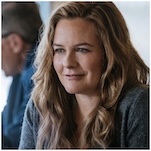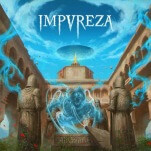Netflix’s Deeply Affecting Maid Sweeps Nothing Under the Rug
Photo Courtesy of Netflix
When a single mom’s life in America resembles a “Chutes and Ladders” game of juggling ineffective government programs and dodging abusive relationships, her struggle to survive represents societal shame, not personal failure.
Life can change on a dime—or be defined by it. In Netflix’s affecting miniseries Maid, this granular type of cost benefit analysis dominates the consciousness. With little calculations churning on the upper right hand corner, each quarter counts. But missing a dollar? Young mother Alex Langley (Margaret Qualley) masters a momentary worried furrowed brow over money before springing on a smile for her daughter, Maddy (Rylah Nevaeh Whittet)—her tightrope walk must be executed flawlessly, lest she panic her daughter about how dire their stakes truly are.
A story cast across 10 hourlong episodes, Maid honors its source material, Stephanie Land’s New York Times best-selling memoir Maid: Hard Work, Low Pay, and a Mother’s Will to Survive, through Molly Smith Metzler’s keen direction. There’s a cheap way to cover poverty in America that’s all shock value stills and cliches, but Maid goes for the gradual build up, a Tetris-like operation of stacking roadblock after roadblock, sprinkled with generational trauma that implicitly informs characters’ decisions before they even realize it. Disasters are written and wrought from years in the making. For Alex, her freedom from doom requires not only a mastery of explicit survival measures (housing, food, gas, childcare, government programs, safety from abuse, flexible work hours), but also a deep understanding of self.
-

-

-

-

-

-

-

-

-

-

-

-

-

-

-

-

-

-

-

-

-

-

-

-

-

-

-

-

-

-

-

-

-

-

-

-

-

-

-

-








































